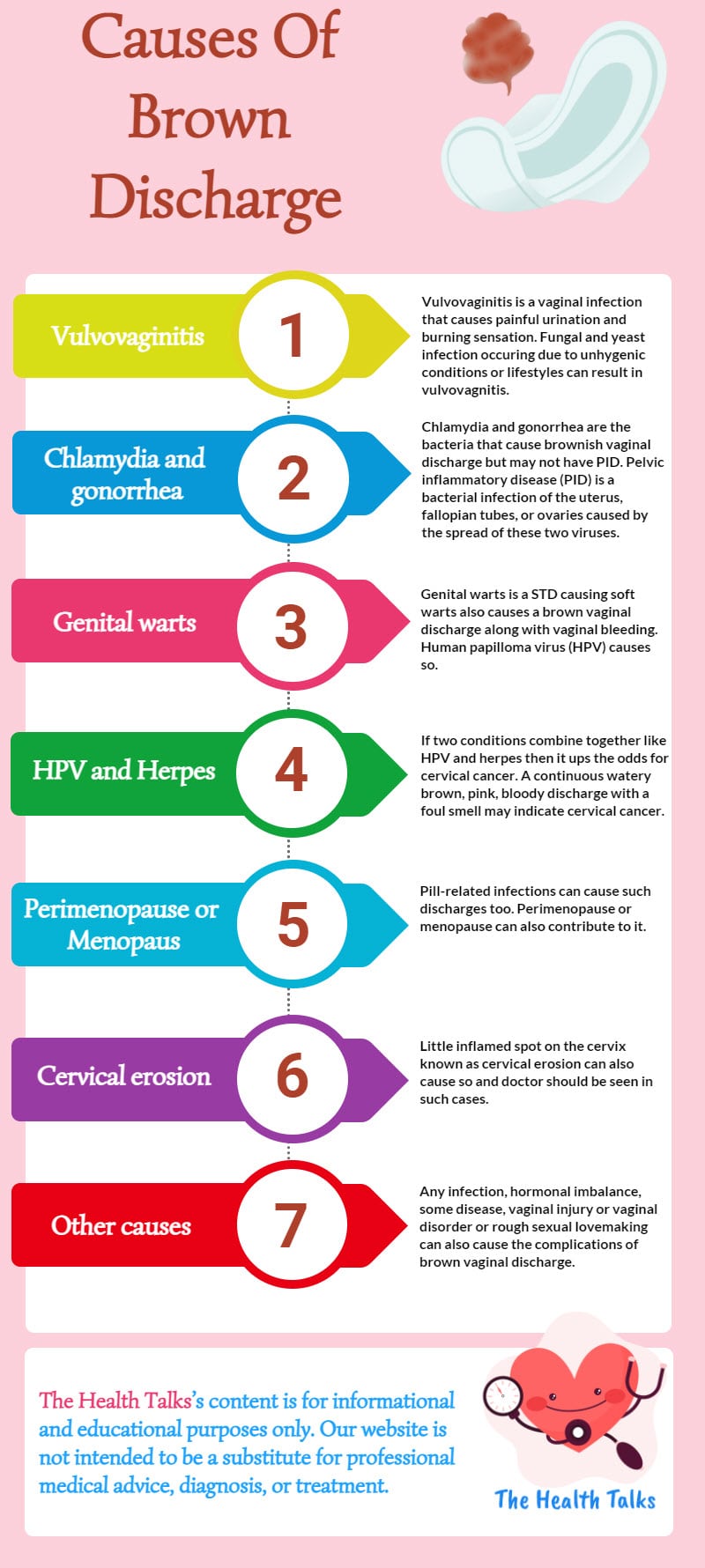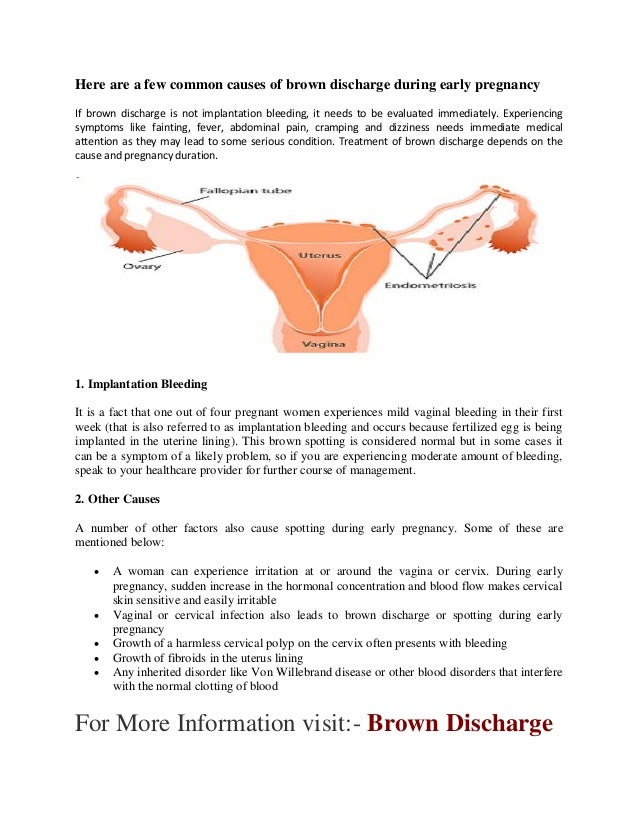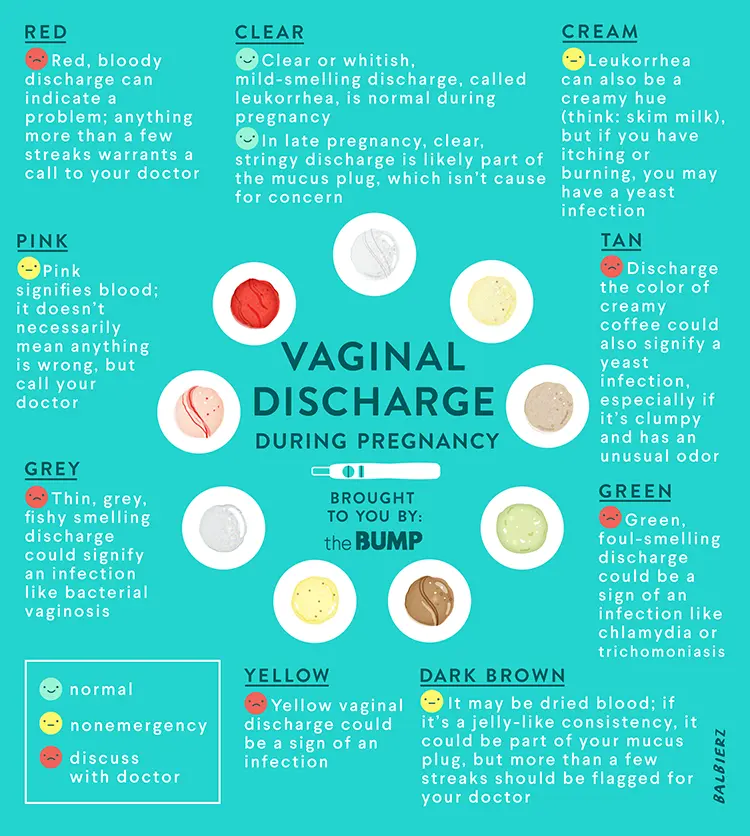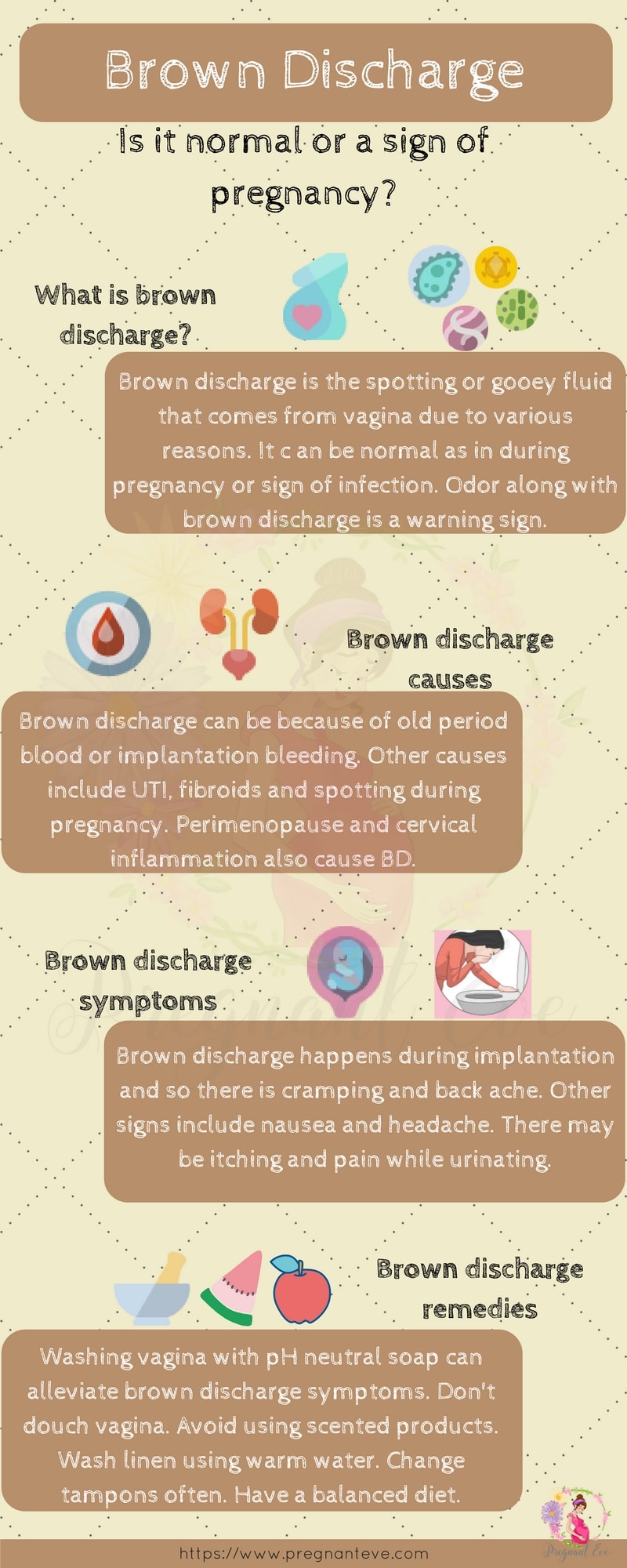Brown Discharge Is Sign Of Pregnancy
Brown Discharge Is Sign Of Pregnancy - It could be a sign that your period has just ended or is about to start or that you’re ovulating. Typically, implantation bleeding happens between 10 and 14 days after conception. This may be a sign of implantation, which. One of the most common causes of brown discharge and spotting in early pregnancy is cervical irritation. A combination of hormonal changes and increased blood flow in the body makes the cervix extra sensitive during. Some pregnant people see a small amount of brown or pink discharge or spotting at the very beginning of pregnancy, around the time their period is due. Sometimes, brown discharge can be an early sign of pregnancy, known as implantation bleeding. Brown discharge or light spotting that never turns into a normal period flow could be implantation bleeding, which is an early sign of pregnancy. Sadly, in the first 12 weeks of pregnancy brown discharge could be an early sign that you're having a miscarriage. According to the nhs a miscarriage is the loss of a pregnancy during the first 23 weeks.
Sadly, in the first 12 weeks of pregnancy brown discharge could be an early sign that you're having a miscarriage. According to the nhs a miscarriage is the loss of a pregnancy during the first 23 weeks. Some pregnant people see a small amount of brown or pink discharge or spotting at the very beginning of pregnancy, around the time their period is due. Brown discharge or light spotting that never turns into a normal period flow could be implantation bleeding, which is an early sign of pregnancy. It could be a sign that your period has just ended or is about to start or that you’re ovulating. A combination of hormonal changes and increased blood flow in the body makes the cervix extra sensitive during. Typically, implantation bleeding happens between 10 and 14 days after conception. This may be a sign of implantation, which. One of the most common causes of brown discharge and spotting in early pregnancy is cervical irritation. Sometimes, brown discharge can be an early sign of pregnancy, known as implantation bleeding.
Sometimes, brown discharge can be an early sign of pregnancy, known as implantation bleeding. This may be a sign of implantation, which. Typically, implantation bleeding happens between 10 and 14 days after conception. It could be a sign that your period has just ended or is about to start or that you’re ovulating. A combination of hormonal changes and increased blood flow in the body makes the cervix extra sensitive during. Sadly, in the first 12 weeks of pregnancy brown discharge could be an early sign that you're having a miscarriage. Some pregnant people see a small amount of brown or pink discharge or spotting at the very beginning of pregnancy, around the time their period is due. According to the nhs a miscarriage is the loss of a pregnancy during the first 23 weeks. Brown discharge or light spotting that never turns into a normal period flow could be implantation bleeding, which is an early sign of pregnancy. One of the most common causes of brown discharge and spotting in early pregnancy is cervical irritation.
💖 Brown Vaginal Discharge Types, Symptoms, Causes
It could be a sign that your period has just ended or is about to start or that you’re ovulating. One of the most common causes of brown discharge and spotting in early pregnancy is cervical irritation. According to the nhs a miscarriage is the loss of a pregnancy during the first 23 weeks. Brown discharge or light spotting that.
Here are a few common causes of brown discharge during early pregnancy
A combination of hormonal changes and increased blood flow in the body makes the cervix extra sensitive during. Some pregnant people see a small amount of brown or pink discharge or spotting at the very beginning of pregnancy, around the time their period is due. This may be a sign of implantation, which. Typically, implantation bleeding happens between 10 and.
How to Stop Brown Discharge During Pregnancy? What to Do?
This may be a sign of implantation, which. Typically, implantation bleeding happens between 10 and 14 days after conception. It could be a sign that your period has just ended or is about to start or that you’re ovulating. Sadly, in the first 12 weeks of pregnancy brown discharge could be an early sign that you're having a miscarriage. According.
Brown Discharge Pictures Of Spotting During Pregnancy Implantation
Some pregnant people see a small amount of brown or pink discharge or spotting at the very beginning of pregnancy, around the time their period is due. A combination of hormonal changes and increased blood flow in the body makes the cervix extra sensitive during. It could be a sign that your period has just ended or is about to.
Brown Discharge During Pregnancy YouTube
According to the nhs a miscarriage is the loss of a pregnancy during the first 23 weeks. Sadly, in the first 12 weeks of pregnancy brown discharge could be an early sign that you're having a miscarriage. Typically, implantation bleeding happens between 10 and 14 days after conception. One of the most common causes of brown discharge and spotting in.
Brown Discharge Is It Normal During Pregnancy?
Sadly, in the first 12 weeks of pregnancy brown discharge could be an early sign that you're having a miscarriage. A combination of hormonal changes and increased blood flow in the body makes the cervix extra sensitive during. One of the most common causes of brown discharge and spotting in early pregnancy is cervical irritation. This may be a sign.
ការហូរទឹករំអិលពណ៌ត្នោតអំឡុងពេលមានផ្ទៃពោះក្នុងត្រីមាសទី 1 ទី 2 ទី 3
Sometimes, brown discharge can be an early sign of pregnancy, known as implantation bleeding. Brown discharge or light spotting that never turns into a normal period flow could be implantation bleeding, which is an early sign of pregnancy. Typically, implantation bleeding happens between 10 and 14 days after conception. A combination of hormonal changes and increased blood flow in the.
Pin on Helping one another
This may be a sign of implantation, which. One of the most common causes of brown discharge and spotting in early pregnancy is cervical irritation. Sadly, in the first 12 weeks of pregnancy brown discharge could be an early sign that you're having a miscarriage. It could be a sign that your period has just ended or is about to.
Condition of Excessive Discharge of Blood From the Uterus
Sometimes, brown discharge can be an early sign of pregnancy, known as implantation bleeding. Brown discharge or light spotting that never turns into a normal period flow could be implantation bleeding, which is an early sign of pregnancy. According to the nhs a miscarriage is the loss of a pregnancy during the first 23 weeks. It could be a sign.
Brown Discharge Symptoms & Remedies for Brown Vaginal Discharge
Sadly, in the first 12 weeks of pregnancy brown discharge could be an early sign that you're having a miscarriage. Sometimes, brown discharge can be an early sign of pregnancy, known as implantation bleeding. Some pregnant people see a small amount of brown or pink discharge or spotting at the very beginning of pregnancy, around the time their period is.
This May Be A Sign Of Implantation, Which.
Brown discharge or light spotting that never turns into a normal period flow could be implantation bleeding, which is an early sign of pregnancy. Sometimes, brown discharge can be an early sign of pregnancy, known as implantation bleeding. According to the nhs a miscarriage is the loss of a pregnancy during the first 23 weeks. Some pregnant people see a small amount of brown or pink discharge or spotting at the very beginning of pregnancy, around the time their period is due.
Sadly, In The First 12 Weeks Of Pregnancy Brown Discharge Could Be An Early Sign That You're Having A Miscarriage.
Typically, implantation bleeding happens between 10 and 14 days after conception. It could be a sign that your period has just ended or is about to start or that you’re ovulating. One of the most common causes of brown discharge and spotting in early pregnancy is cervical irritation. A combination of hormonal changes and increased blood flow in the body makes the cervix extra sensitive during.








